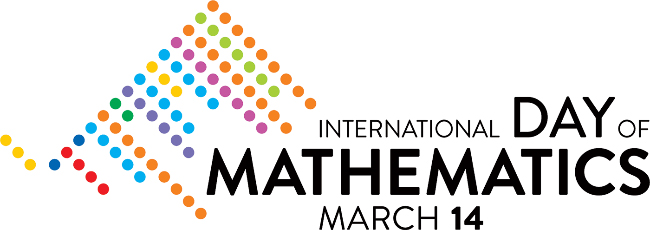In the context of the International Day of Mathematics 2021 (14 March), which this year has as its slogan ‘Mathematics for a Better World’, established by UNESCO, the documentary, “Mathematical circles around the world”, will be screened this Monday, March 15 at 16:30, via the Zoom platform.
In a premiere for Latin American, by documentary filmmaker Ekaterina Eremenko, it will be one day after March 14, International Mathematics Day.
‘Mathematical Circles around the World’ is the record of the testimonies of academics, academics and students participating in these organizations, both in European countries and in the United States. “The important thing to highlight about the documentary is the recognition that is made of these organizations in the context of prestigious universities, for which mathematical ideas are as important as the experience of doing mathematics,” said Carlos Martinez, head of career in Mathematics and Computer Education at ULagos.
In order to contextualize the documentary projection and the celebration of the International Day of Mathematics, Carlos Martinez commented that “I believe that the recognition of UNESCO is a natural consequence to that mathematics is an integral part of the culture not only scientific of a society, it permeates the most atavistic aspects of the human condition. Answering at full length is not easy, however, I believe that the best way to make sense of the importance of mathematics is to give it context in our lives. For example, these days we can see it directly in what we are experiencing today as a result of the pandemic,” he said.
The researcher adds that “Let’s think for a minute in how governments and states take their decisions, especially how such desicions are assertive. Today, there is no doubt for those who should lead these decisions that they need to have data, quantitative information, predictive models, without these tools, we could say we are moving forward blindly.” He adds that “Another way to see it is to think about social issues as well. for example, when we want to address existing gaps in our countries, such as wage and gender inequalities, the challenge often goes beyond the testimons to make them evident, beyond the testimonies, in these cases mathematical modeling is also used. I leave it for reflection whether or not global warming is debatable for you today, if so, where would we look for the arguments to reaffirm or refute the problem?” reflects the head of the race.
ULagos
As for the focus or seal of mathematics at the ULagos, Carlos Martinez indicated that “from the beginning of any curriculum, including those even from disciplinary areas that are not scientific, we will find content in the field of mathematics” and adds that “these are there, not only as a matter, but why cultivating it is a skill in itself, that is to say, understanding mathematical language and how with it we can represent the different phenomena that interest us is part of the fundamental learning of the citizens of the XXI century. In the particular case of the Pedagogy career in Mathematics and Computer Science, the disciplinary training in mathematics is fundamental, it is central, with special attention for those who will take on the challenge of teaching the, the citizens of the 21st century!” he said.
UNESCO
Carlo Martinez explained that UNESCO, by establishing the International Day of Mathematics (14 March), “does not only assume education in formal contexts; education is a phenomenon, human activity that accompanies us throughout life. The phrase that ‘a devil knows more for old than for devil’ is a good way to testify to this. In this sense, UNESCO in establishing the day of mathematics only recognizes the existing debt with this important discipline, giving this science a cultural dimension on a par with the humanities, arts in all their forms”, and adds that “we can appreciate a poem, a pictorial work, a film, an architectural work, without us being cultists of these disciplines, then, UNESCO only intends to remind us that we can also appreciate the beauty of mathematical ideas, not necessarily being cultists of this discipline,” he said.
“The invitation is to shake off frustrations, let yourself go in the same way when we listen to a music concert, you can also experience the same pleasure with a mathematical show,” concluded Carlos Martínez, head of Pedagogy in Mathematics and Computing.












